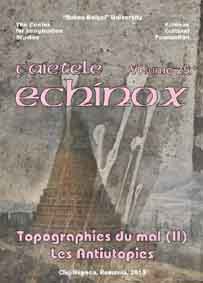Utopie, situation, anti-utopie. Ionesco contre la littérature engagée de Sartre
Ionesco’s Critique of Sartre’s ”Committed Literature”
Author(s): Cécile FolschweillerSubject(s): Literary Texts
Published by: Universitatea Babeş-Bolyai
Keywords: Eugen Ionesco; Jean-Paul Sartre; Committed literature; Utopia; History; Intellectual(s).
Summary/Abstract: The aim of this article is to re-examine Eugene Ionesco’s critique of Sartre’s concept of ”committed literature” both from the perspective of the relationship between imagination and real history and in the light of the concepts of utopia and ”situation” – the latter coined by Sartre – in order to provide a deeper insight into how Ionesco eventually managed to write what may be described as his ”committed” plays. The thrust of the argument is that his conception of ”the committed intellectual” is rooted in his experience of history as a Romanian, and that such an experience of history also made it possible for him to create the imaginary dystopia which lies at the centre of his plays.
Journal: Caietele Echinox
- Issue Year: 2013
- Issue No: 25
- Page Range: 111-125
- Page Count: 15
- Language: French
- Content File-PDF

